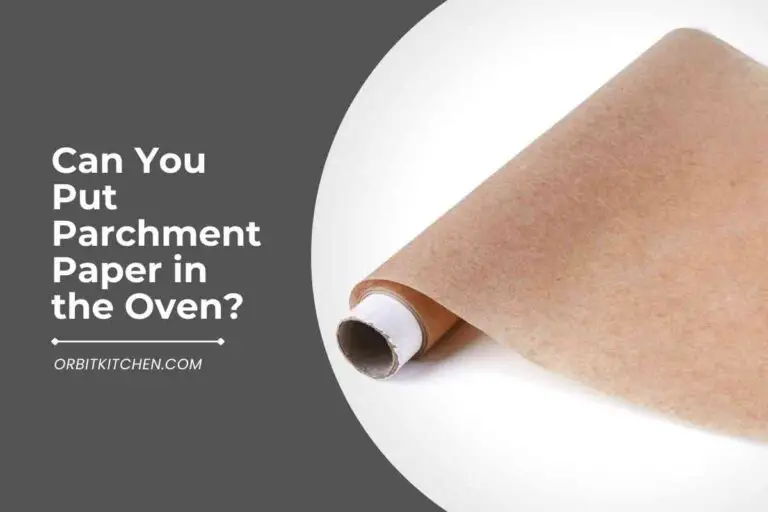Why Do Cooks Wear Aprons?
The uniform for cooks is essential for several reasons, such as health, safety, and hygiene. An apron is a component of a cook’s uniform that they wear over their clothes that acts as a protective barrier from the mess they make while cooking. Aprons can be tied around the waist or cover the entire torso.
Why Do Cooks Wear Aprons?
The cooks and chefs wear aprons to ensure cleanliness, safety, and hygiene. In addition, the apron acts as a protective barrier against heat, stains, and flames. It keeps the clothes of the cooks clean, which can be helpful when they have to greet the guests. They can simply remove the apron and walk around in the dining area to enhance the experience of customers and guests.
Have you wondered why it is so necessary to wear aprons while cooking? Read on to know the advantages of the aprons. You will also learn how pockets in aprons can be beneficial. Further, you will know how often you should wash your apron and how you can wash it properly.
If you are interested in checking out the best chef apron, then you can find them on Amazon by clicking here.
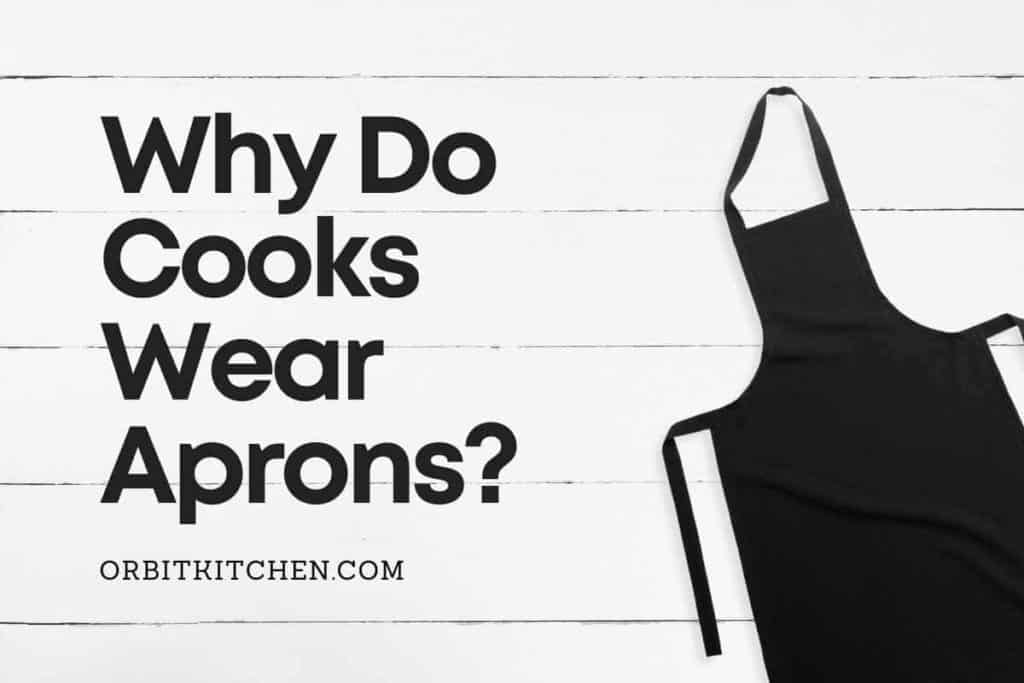
Why Wear an Apron?
An apron is a garment that is worn over other clothing to protect them from spills and stains. Aprons are commonly worn in the kitchen to protect clothes from cooking splatters and spills. They are also worn by painters, gardeners, and other workers who might get dirty as part of their job.
There are many reasons to wear an apron. In the kitchen, an apron can protect your clothes from getting ruined by food or cooking accidents. If you are a painter, wearing an apron can keep your clothes clean and free of paint stains. Gardeners also wear aprons to clean their clothes while working outside.
Aprons can also be worn for fashion or practical purposes. Some people wear aprons as part of a uniform, while others wear them because they look cute or stylish. Some aprons even have pockets that can be used to hold tools or other items.
Whether wearing an apron for function or fashion, it is a helpful and versatile garment that can be used in many different situations.
Why Do Chefs Wear Aprons?
There are several reasons why chefs wear aprons. One reason is that aprons protect their clothing from getting dirty or stained. Aprons also help keep chefs cool by absorbing sweat. In addition, aprons can be used to hold towels, utensils, and other items that a chef may need while cooking.
Another reason why a chef wear aprons is to create a uniform look. Chefs often wear white aprons to create a clean and professional appearance. Wearing a uniform can also help chefs feel more confident and prepared while cooking.
Lastly, aprons can be used as a marketing tool. Many restaurants and chefs use aprons to promote their brand or to show off their signature style. Aprons can be printed with a restaurant’s logo or a chef’s name and can be used to advertise special menu items or events.
Usage of Apron in Cookery
An apron is commonly used in cooking to:
- Protect clothing from spills, splatters, and stains.
- Provide a convenient place to store utensils, towels, or recipe notes.
- Keep clothes clean and maintain a professional appearance in a kitchen setting.
- Serve as a practical accessory for easy movement and comfort.
- Prevent exposure to hot splashes and spills.
What Is the Use of Apron in Cooking?
An apron is worn over other clothing to protect them from stains and splashes. It is typically made of cloth or plastic and has a ties or loops that go around the neck and waist. It is often worn in the kitchen to protect clothing from cooking spills and splatters.
An apron can be used for other purposes as well, such as in a workshop to protect clothing from sawdust and oil stains. It can also be worn while gardening to keep clothes clean. Overall, an apron is a versatile garment that can be used in many different settings to protect clothing from dirt and stains.
The use of apron in cookery is to protect your clothing from getting dirty. When you are cooking, there are often spills and splatters. If you are not wearing an apron, your clothing can get stained. Wearing an apron can also help to keep your clothing clean if you are working with messy ingredients.
An apron in cookery keeps you cool, if you are working over a hot stove, an apron can help to keep your body temperature down. It can also protect your skin from burns if you accidentally touch a hot surface.
The function of apron can vary depending on the occasion. For example, an apron may be worn to protect clothing from getting dirty or to keep oneself clean. Additionally, aprons can be worn for fashion or to make a statement.
For instance, a chef might wear a colorful apron to show off their personality while cooking. Ultimately, the function of an apron depends on the wearer and the situation.
Are Aprons Necessary in Kitchen?
Cleaning is one of the main reasons why aprons are necessary. But the aprons have some other benefits too that we discussed below.
Food Hygiene
One of the simplest steps you can take to maintain food safety and hygiene is to wear an apron. Eating outside can be risky for your health, but eating at home can also have risks.
The clothes you may have been wearing for the whole day can have different kinds of germs and dust, and those can be easily transferred to the food you cook. Therefore, an apron can be useful in avoiding food contamination by any contaminants carried on your normal clothing.
Protection
When you are in the kitchen, especially while working with hot oil or water, an apron protects against burns, spills, and stains. The aprons are available in several materials and lengths, and you can choose an apron according to your requirements to keep the risks at bay.
Personal Comfort
The cooking activity is enjoyable, but people may feel uncomfortable in the kitchen and make a mess. However, an apron gives an added layer of protection against flames, heat, spills, and stains. It comforts the cooks and chefs and enhances their performance and workability.
Professionalism
When people eat outside, they are concerned about whether the food is clean and safe. Therefore, restaurants and their staff need to be extra cautious while cooking and serving the food.
An apron looks professional to cooks and waiters, and people trust them. Therefore, people will not be concerned about the safety of the food and can eat outside without worrying about risks.
Identification
Restaurant employees wear aprons according to their rank, making it easy to identify them. Hence, people can easily distinguish between employees and customers and approach them accordingly. Although identification is not the primary function of an apron, it comes in handy.
How Do You Get Rid of Smell Out of Aprons?
Your apron can absorb strong odors and smells from the kitchen. Try these easy methods to eliminate odors from your chef uniforms and aprons.
- Add bleach to your wash while washing aprons to eliminate the odors.
- Mix the borax powder with your detergent, which will eliminate unpleasant smells after washing.
- Mix vinegar, baking soda, and water; soak your apron in this solution overnight, and then wash it to get rid of the smell.
- Soak your apron in a solution of water and baking soda before laundering to eliminate the smokey smell.
- To eliminate the oil smell from your apron, place it in a plastic bag with some baking soda for a few days, then wash it.
Check out this Adjustable Bib Waterdrop Resistant Apron for women, available in thirteen colors with machine washable features.
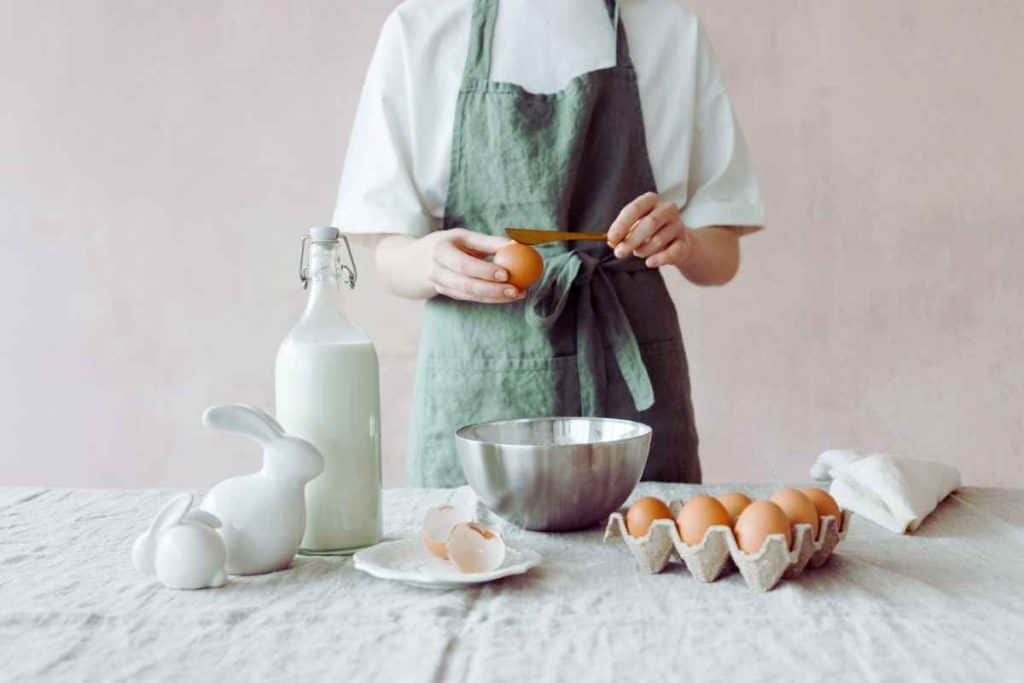
Why Do Aprons Have Pockets?
In aprons, the pockets can be very useful for storing essential items and tools that cooks require while cooking, enabling quick access to these items that can improve efficiency. Because it can waste a lot of time; when cooking in a big kitchen while utensils and ingredients are scattered everywhere.
Do You Really Need Pockets In Aprons?
You can keep oven mitts or a sponge or cleaning cloth (that you can use to clean the kitchen counters and even vessels before serving) in the pockets of aprons.
Further, you can keep tools that help you while preparing and presenting the food. You can, for example, keep a spoon in your apron that will help you prepare something; and taste it to ensure everything is okay.

If you are interested in this Apron with a pocket, feel free to check it out on Amazon here.
How Often Should You Wash Aprons?
You may have to wash aprons every two days. But if you get any juices or flour on them, you may need to go through a couple of aprons in a single day. However, the cooks wash their aprons after a few days or weeks unless they get messier.
Additionally, you must change the apron immediately if you spill something over it. Furthermore, if you are baking or cooking something with flour, it may be necessary to wash your apron more frequently.
What Is The Fastest Way To Wash An Apron?
Soak your apron in warm water for 20-30 minutes, wash it in the washing machine with detergent and bleach, and then hang it to dry thoroughly before using. However, before laundering, make sure that the cloth of the apron is safe to put in different solutions, bleach, and washing machine.
However, if your apron has stubborn stains, you should treat them before putting them into the washing machine. To treat the spots, you can soak your apron in a solution of lemon or baking soda, vinegar, or lemon with water for 30-40 minutes and then wash it in the washing machine.
Apron Uses in Kitchen
Aprons are most commonly worn in the kitchen, but they can also be worn in other settings such as in a workshop or while gardening. There are many different types of aprons, including those made from different materials and with different designs.
The most common type of apron is a half-apron, which covers the front of the body from the waist to the knees. Half-aprons are often worn in the kitchen to protect clothing from spills and splatters. They can also be worn in other settings, such as when gardening or doing crafts.
Other types of aprons include full-aprons, which cover the entire front of the body, and bib aprons, which have a band that goes around the neck and a bib that covers the chest and stomach. Aprons can also be made from different materials, such as cotton, denim, or leather.
Aprons are a common item in many kitchens because they can be used for a variety of tasks. For example, an apron can be used to wipe up spills, to hold hot pans, or protect clothing from splatters.
Advantages of Apron
The advantages and importance of apron in the kitchen include:
- Protecting clothing from spills, splatters, and stains
- Providing convenient storage space for utensils and tools
- Keeping clothes clean and presentable
- Offering a comfortable and flexible fit
- Adding a personal touch to cooking or food preparation
- Making it easy to identify the person as a chef or cook.
Conclusion
Cooking is an art and fun, but it can be messy too. However, an apron is a simple piece of clothing that makes a difference.
Even though people take it for granted, it is a very effective safety device that ensures cleanliness, comfort, hygiene, and protection when cooking. Further, you must wash your aprons every few days to ensure cleanliness and hygiene.
FAQs
Why Do We Wear an Apron in the Cook’s Area?
Aprons are worn in the kitchen to protect clothing from spills, and stains and to provide a clean surface for food handling.
Why Do We Wear Apron in the Kitchen?
Aprons are worn in the kitchen to protect clothing from spills and splatters while cooking or preparing food. They can also provide a convenient place to store utensils and tools.
Why Should You Wear an Apron While Cooking?
Wearing an apron while cooking helps protect clothing from spills, splatters, and stains, and also provides a convenient place to store utensils and towels.

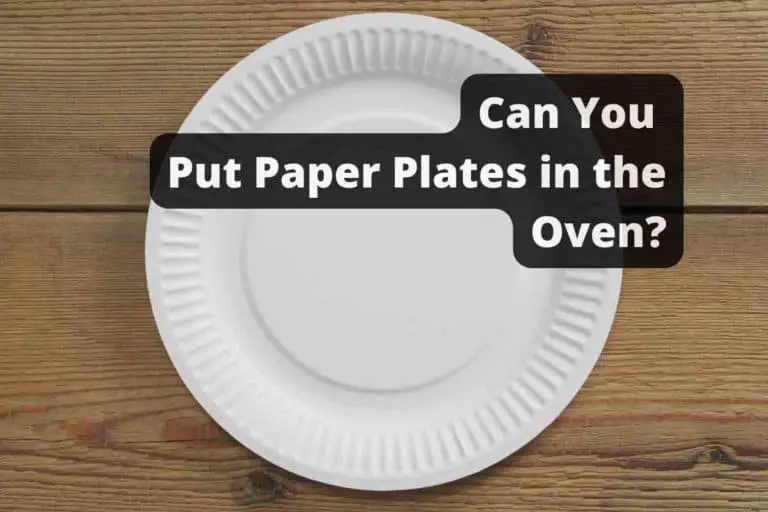
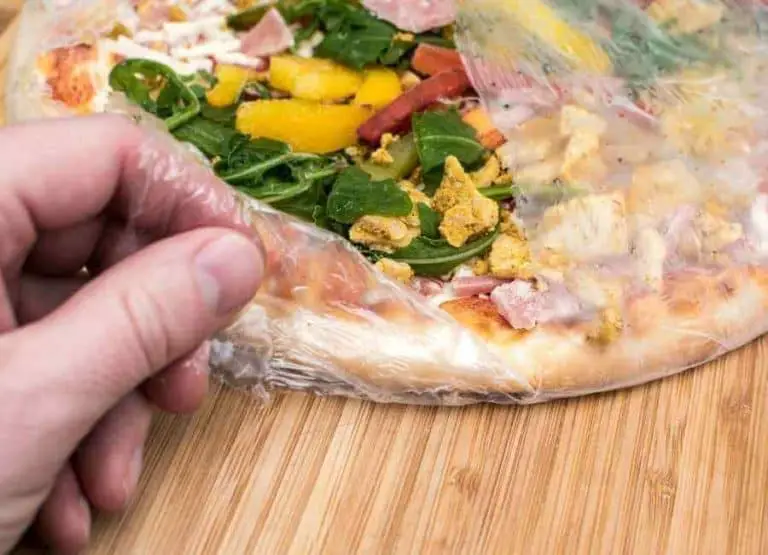

![Are Plastic Colanders Dishwasher Safe? [How To Wash Them]](https://orbitkitchen.com/wp-content/uploads/2022/03/Are-Plastic-Colanders-Dishwasher-Safe-768x512.jpg)

